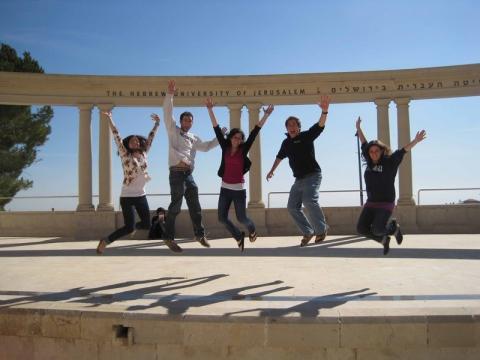Israel pushes universities to woo foreign students
“When you have people from different backgrounds you open yourself up to a variety of cultures and ways of thinking, and that enriches you,” Prof. Yaffa Zilbershats, the chairman of the council, said in an interview. “This openness will enrich those who come from abroad, but also those who are here.” Data collected by the OECD shows that in the developed world the average number of foreign students at universities is 9 percent of the total student corps. The US is one of the countries that attracts a high percentage of foreign students, from such countries as India, China and Israel, who later on stay on and find jobs locally.
In Israel, the number of foreign students is a low 1.4% of the total student body. “We are lagging behind the developed world on this,” Zilbershats said, because local universities and colleges do not have the infrastructure in place to accept foreign students and to ease their integration into the local studies curriculum. The council’s target is to bring the total number of foreign students in Israel to around 6% within six years.
The council has said that it will award half a million shekels to universities and colleges that move toward offering courses and programs in English, training teachers to teach in English and reaching out to exceptional foreign post-doctoral students. They would also need to set out mentorships and support system for these students.
“For some organizations who already have these facilities in place the transition will be easy,” Zilbershats said, forecasting that some universities will have the foreign students program in place as soon as the upcoming academic year.
Shoshanna Solomon

